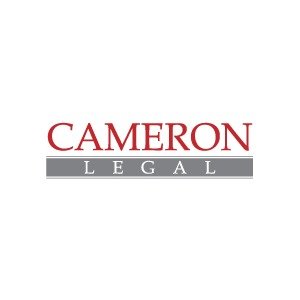Best Land Use & Zoning Lawyers in Epping
Share your needs with us, get contacted by law firms.
Free. Takes 2 min.
Free Guide to Hiring a Real Estate Lawyer
List of the best lawyers in Epping, Australia
About Land Use & Zoning Law in Epping, Australia
Land Use and Zoning Laws in Epping, Australia pertain to how land and built-up areas within the locale can be utilised. The laws guide the residential, commercial, and industrial development and dictate the overall urban layout of the region. An understanding of these laws is crucial for property owners, developers, businesses, and even non-profits in Epping. The regulations are regulated by the Local Environment Plans (LEPs) and human-enforced by local councils, the state government of New South Wales, and the Land Environment Court.
Why You May Need a Lawyer
There are several situations where you might need legal help when it comes to Land Use & Zoning. You might need a lawyer if you wish to challenge a local zoning decision, require assistance with property development applications, or wish to explore possibilities for changes in zoning properties for alternate usage. Legal help is also useful when dealing with contentious developments or land use disputes with local councils or neighbours.
Local Laws Overview
The primary law governing land use and zoning in Epping belongs to the overarching planning legislation of New South Wales: the Environmental Planning and Assessment Act of 1979. This provides a framework for environmental planning in NSW, which includes land usage and zoning. Additionally, zoning regulations are locally influenced by the Epping Planning Scheme, which stipulates the specific type and form of development allowed in various zones of Epping. These laws address various aspects of land use, including urban conservation, environmental management, commercial and housing developments.
Frequently Asked Questions
1. What are the different types of land zoning in Epping?
Epping's zoning types mainly include residential, business, open space, and environment protection, each having specific usage parameters.
2. Who enforces these zoning laws?
The Hornsby Shire Council primarily administers and enforces zoning laws in Epping.
3. Can I rezone my property?
Yes, you can apply for a zone change, but it will be subject to the approval from the Local Environment Plan (LEP) and the local council after several assessments to meet legal and environmental criteria.
4. What happens if one does not comply with zoning laws?
Failing to comply with the zoning regulations can result in fines, building demolition orders, modification instructions, or legal actions from local councils.
5. Where can I find more information about the zoning of a specific property?
Zoning maps are used to identify the zoning of a specific property, which are available on the website of the Department of Planning, Industry, and Environment.
Additional Resources
Relevant resources include the official website of the Hornsby Shire Council, Department of Planning, Industry, and Environment of NSW, and the Land Environment Court. These are useful sources to obtain regulation information, development applications, and dispute resolution mechanisms.
Next Steps
If you require legal assistance relating to Land Use & Zoning in Epping, Australia, the primary step is to find a lawyer specialising in property or land use laws. You may need to consult your situation, understand the legal implications, and proceed with legal actions or applications if necessary. It would also be beneficial for you to educate yourself about the local zoning laws to understand your legal standpoints better.
Lawzana helps you find the best lawyers and law firms in Epping through a curated and pre-screened list of qualified legal professionals. Our platform offers rankings and detailed profiles of attorneys and law firms, allowing you to compare based on practice areas, including Land Use & Zoning, experience, and client feedback.
Each profile includes a description of the firm's areas of practice, client reviews, team members and partners, year of establishment, spoken languages, office locations, contact information, social media presence, and any published articles or resources. Most firms on our platform speak English and are experienced in both local and international legal matters.
Get a quote from top-rated law firms in Epping, Australia — quickly, securely, and without unnecessary hassle.
Disclaimer:
The information provided on this page is for general informational purposes only and does not constitute legal advice. While we strive to ensure the accuracy and relevance of the content, legal information may change over time, and interpretations of the law can vary. You should always consult with a qualified legal professional for advice specific to your situation.
We disclaim all liability for actions taken or not taken based on the content of this page. If you believe any information is incorrect or outdated, please contact us, and we will review and update it where appropriate.








